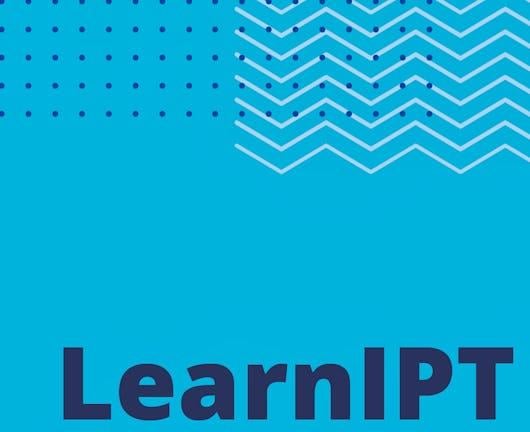MOOC List is learner-supported. When you buy through links on our site, we may earn an affiliate commission.

MOOC List is learner-supported. When you buy through links on our site, we may earn an affiliate commission.
It is recommended by the World Health Organization and expert consensus guidelines as a depression treatment. This case-based, interactive online course provides teaching on the theories, indications and clinical practice guidelines for IPT. The course features interactive learning exercises and video-taped demonstrations of clinical principles-in-practice. By the end of the course, learners will better understand how IPT can help patients address and resolve depression-related interpersonal problems, thereby improving their mood.
Syllabus
Course information
Welcome to the the Learn Interpersonal Psychotherapy (IPT) Coursera Course! IPT is a brief, structured psychotherapy treatment that has been shown to be effective, especially for depression. Throughout the course there will be many clinical demonstration videos and case studies to illustrate IPT principles in practice, along with interactive questions to help you to consolidate your learning. This course is divided into nine lessons that you can complete at your own pace. This first short lesson includes welcome messages to the course and information about how to use the course.
The IPT Model and Therapeutic Foundations
The second lesson will start with an introduction to the foundational principles and structure of interpersonal psychotherapy (IPT). This lesson will teach you the foundational requirements of establishing and maintaining a good therapeutic alliance. The lesson will conclude with a review of how to recognize individual patient differences of culture, trauma histories and patterns of relating, and how these differences will affect IPT practice.
The IPT Beginning Phase
The third lesson will introduce you IPT’s clinical guidelines and the therapeutic tasks of the beginning phase of IPT, such as conducting the Interpersonal Inventory and providing psychoeducation. The beginning-phase therapeutic tasks help the IPT therapist link the onset of the patient’s depressive symptoms to an interpersonal problem area focus—either grief, role transitions, role disputes or interpersonal sensitivity.
The IPT Middle Phase
Now that you have learned about the IPT beginning-phase tasks, we will proceed to the middle-phase therapeutic guidelines. This fourth week focuses on the middle-phase strategies that are used in all of the differing IPT problem areas of focus. Subsequent lessons will discuss each IPT focal area with specific context exploration guidelines. Please be sure to complete the interactive, case-based exercises and check-in questions to help to consolidate your learning.
Focus-Specific IPT Middle-Phase Tasks: Grief
You have now learned about the middle-phase IPT strategies used in all four of the IPT focal areas. Continuing with the middle-phase of IPT, the next four lessons will examine each of the four IPT focal areas: grief, role transitions, role disputes and interpersonal sensitivity. This next lesson focuses on grief, with a case example of someone whose spouse has died. Be sure to do all of the interactive exercises and end-of-lesson quiz to consolidate your learning.
Focus-specific IPT Middle-Phase Tasks: Role Transitions
Life changes and social role transitions are common, and even when planned for, can be associated with the onset or worsening of depression. This lesson presents the IPT clinical guidelines for the focus area of role transitions and includes a case-based example of a woman with post-partum depression. Be sure to complete the interactive exercises to help consolidate your learning.
Focus-Specific IPT Middle-Phase Tasks: Role Disputes
This next lesson focuses on role disputes or conflicts in close relationships that can trigger or be associated with an onset or worsening of depression. Throughout the lesson there are video demonstrations of the focus-specific IPT tasks applied to the case of “Anna,” a patient who is experiencing depressive symptoms relating to conflict with her father, and whom you first encountered in Lesson 3. Be sure to complete all of the interactive exercises and end-of-lesson quiz to help to consolidate your learning.
Focus-Specific IPT Middle-Phase Tasks: Interpersonal Sensitivity/Loneliness
This next lesson focuses on interpersonal sensitivities or loneliness that can be associated with an onset or worsening of depression. Throughout the lesson there are video demonstrations of the focus-specific IPT tasks applied to case of “Ethyl,” a patient who is experiencing depressive symptoms relating to increasing social isolation, and whom you first encountered in Lesson 3. Be sure to complete all of the interactive exercises and end-of-lesson quiz to help to consolidate your learning.
The IPT Ending Phase
This final lesson reviews clinical principles of the ending phase tasks of IPT with several video demonstrations. Interactive exercises are embedded in the videos and also appear throughout this lesson to help to consolidate your learning about the termination, concluding phase tasks of IPT.
MOOC List is learner-supported. When you buy through links on our site, we may earn an affiliate commission.
MOOC List is learner-supported. When you buy through links on our site, we may earn an affiliate commission.
